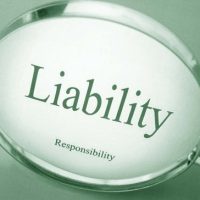Can Substance Abuse Rehab Be Court-Ordered In Florida?

Substance abuse is a persistent problem in the United States, but Florida has unique issues related to its geography and to its past as a drug mecca. When someone is tried for a drug offense, a Florida court will generally take the charge very seriously and impose a strict sentence. However, first-time offenders and certain others who admit to having a substance abuse problem may be diverted toward non-penal sentences if their cases are seen to merit it. Substance abuse rehab is often part of court-ordered commitments, though it usually comes with other requirements for the convicted drug user.
Rehab Is Not A Safe House
Something important to understand for substance abusers is that rehab is not a sanctuary. Florida’s Marchman Act allows a physician, law enforcement officer, or certain loved ones to file a petition for involuntary commitment of a substance abuser who is a danger to themselves or others, and some voluntarily consent to this because there is an enduring misconception that police cannot arrest someone who is in a rehab facility.
While it is true that the Health Insurance Portability & Accountability Act (HIPAA) does not allow medical information to be shared with law enforcement, a person must be produced if there is a warrant for their arrest. In addition, if someone does not comply with the court order requiring them to attend substance abuse rehab, they can be charged with contempt of court and jailed on that charge.
Options For First-Time Offenders
If you have never been in trouble with the law before, but are self-aware enough to admit that you have a drug or alcohol problem, you may be able to participate in a Florida pretrial diversion program known as drug court. Founded in Miami in 1989, drug courts try to help those with addiction problems by requiring them to attend outpatient programs like psychiatric counseling, judicial monitoring (instead of jail time), and, indeed, substance abuse rehabilitation.
It is important to keep in mind that mere participation in drug court programs is not sufficient for the court; a person must complete the program before any charges can be dropped or put on the inactive docket. If you are granted the right to participate in drug court instead of serving jail time, and you fail out of the program, your case will be set back on the active docket, as if nothing had happened before. Florida requires defendants to demonstrate their commitment to change before their legal troubles can disappear.
Contact A Tampa Substance Abuse Rehab Attorney
Most of the time, drug offenses are taken very seriously in Florida courts, but if someone has a genuine problem with addiction, it will be taken into account – many defendants are granted the chance to work on getting clean, along with clearing up their legal problems. A Tampa treatment center negligence attorney from the Rinaldo Law Group can try and answer your questions about the process. Contact us for a consultation today.
Source:
leg.state.fl.us/statutes/index.cfm?App_mode=Display_Statute&URL=0300-0399/0397/0397.html












